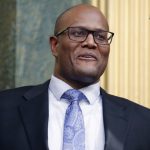Nigerian music artist Skales has taken to social media to express his deep frustration and anger at Guaranty Trust Bank (GTBank), describing the financial institution as a “horrible bank” in a strongly worded post. The outburst, which has gained widespread attention online, stems from what Skales claims was the bank’s neglect and poor customer service during a critical time in his late mother’s life.
The artist, whose real name is Raoul John Njeng-Njeng, did not mince words as he recounted an incident that, according to him, left emotional scars and highlighted serious lapses in how some financial institutions in Nigeria handle customer relations, particularly in moments of emergency.
Public Outrage and Viral Post
In a series of social media posts that quickly went viral, Skales accused GTBank of blocking access to his mother’s account at a time when funds were urgently needed for her medical care. According to the singer, the bank’s failure to assist or even respond adequately to his repeated requests contributed to a painful and distressing experience during one of the most difficult periods of his life.
“I will never forget how you people frustrated me when my mother was ill and I needed access to her account to pay medical bills,” Skales wrote. “You people blocked the account and didn’t care about anything. No help, no empathy, no humanity. Horrible bank!”
He further added that despite presenting the necessary documents and explaining the gravity of the situation, the bank allegedly refused to process requests or offer any alternative solution that could have made a difference.
Fans and Public React
The revelation has sparked a wide range of reactions from fans, fellow celebrities, and the general public. While some users on social media sympathized with the singer and shared similar negative experiences with the bank, others called for GTBank to address the matter publicly and review its customer service protocols.
A user on X (formerly Twitter) responded: “What happened to Skales’ mom is heartbreaking. No one deserves to be treated like that, especially during a medical emergency. GTBank should do better.”
Another wrote: “It’s not just about Skales. So many people have had their money withheld or accounts restricted without proper explanation. Financial institutions need to start treating customers like human beings.”
Spotlight on Banking Regulations and Ethics
Skales’ statement has reignited conversations around customer service ethics and the bureaucratic red tape often associated with Nigerian banks, especially when it involves accessing the accounts of deceased or incapacitated individuals.
Experts argue that while banks must adhere to regulatory requirements to prevent fraud and unauthorized access, there should also be protocols in place to handle emergency situations with sensitivity and urgency.
Legal and financial analyst Tunde Okonkwo explained: “Banks have a duty to protect customer accounts, but they also have an obligation to provide timely and compassionate service when valid concerns are raised. There must be a balance between compliance and humane treatment of customers.”
He further emphasized the need for banks to train their staff on handling such delicate matters, especially when medical emergencies and death are involved. “There are real human consequences when institutions choose bureaucracy over empathy.”
Skales Demands Accountability
While the singer did not mention if he plans to take legal action or file a formal complaint through regulatory bodies such as the Central Bank of Nigeria (CBN) or the Consumer Protection Council (CPC), his call for accountability was clear.
“Money that could’ve helped save my mom’s life was locked away by this bank. I will keep speaking on this until something changes,” Skales wrote. “How many more people have gone through the same thing in silence?”
He also used the opportunity to encourage others who may have experienced similar mistreatment to speak out, emphasizing that silence often enables further injustice. His statement was followed by an outpouring of support from fans and colleagues in the entertainment industry.
GTBank Yet to Respond
As of the time of this report, GTBank has not issued a public statement in response to the allegations made by Skales. Efforts to contact bank representatives for comment were unsuccessful. The absence of an immediate response has only fueled more criticism online, with users calling on the bank to address the matter publicly and apologize if necessary.
This is not the first time GTBank or other commercial banks in Nigeria have been called out for customer service failures, but high-profile cases like this one often bring more visibility to systemic issues in the sector.
Broader Implications for Financial Services in Nigeria
The situation also raises broader questions about how banks handle customer relationships, especially in high-stress situations such as illness or death. Many Nigerians have shared experiences of long delays, complex documentation requirements, and what they describe as “cold” treatment by bank staff when trying to resolve urgent issues.
In a country where digital banking and automation are growing, experts believe that a human-centered approach must not be lost. The need for accessible grievance redress mechanisms, better staff training, and responsive customer service teams is more urgent than ever.
Consumer rights advocates are calling for clearer policies and transparent procedures from financial institutions, especially those handling large volumes of personal and business accounts like GTBank.
Conclusion
Skales’ public condemnation of GTBank has opened up an important conversation about the responsibilities of banks toward their customers, particularly in moments of crisis. His heartbreaking account of his mother’s experience serves as a reminder that behind every account number is a human being whose needs and challenges deserve compassion, efficiency, and dignity.
Whether this incident will push GTBank to reassess its procedures or prompt wider reforms in the Nigerian banking sector remains to be seen. For now, Skales has used his platform to shine a light on an issue that many Nigerians face but few are willing or able to speak about.






